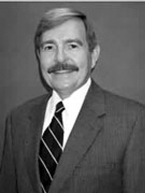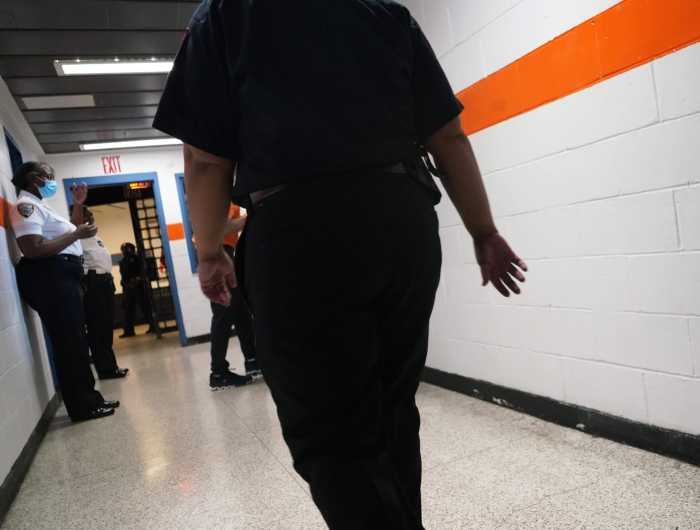VOLUME 4, ISSUE 1 |Jan 06 – 12, 2005
POLITICS
Judge Rules Arkansas Gays Allowed to be Foster Parents
Warning from bench about possible legislative backlash
The Lesbian and Gay Rights Project of the American Civil Liberties Union (ACLU) won a victory on December 29 when an Arkansas court struck down a state regulation prohibiting gay people from being foster parents.
The decision by Pulaski County Circuit Judge Timothy Davis Fox found that the prohibition had no rational relationship to the health, safety or welfare of children needing foster care in Arkansas under the regulations enforced since 1999 by the Child Welfare Agency Review Board.
At the same time, Fox rejected the argument that the regulations are unconstitutional, invoking language from a federal appeals case in Atlanta, whereby Florida’s anti-gay adoption rules were upheld on “morality” grounds. The end result is that Arkansas’ regulations are declared invalid, but Fox’s opinion allows the state legislature to re-authorize them, if it cares to do so, by the simple expedient of amending the state’s foster care statute with the addition of just one phrase.
Adoption laws in Arkansas and Florida make an interesting contrast. Florida forbids gay people from adopting children, but gay adults may be foster parents, and in fact many gay people have long-term foster relationships with children that are “virtual adoptions.” Arkansas, by contrast, has no statute forbidding gay people from adopting children, but the state agency charged with administering the foster care system adopted a draconian adoption policy excluding not only gay people, but even heterosexuals who have a gay adult living in their household.
In the Arkansas case, the plaintiffs in the case brought by the ACLU include two gay couples and a straight couple disqualified from adopting because their gay adult son occasionally lives in their home. Leslie Cooper and James Esseks from the ACLU’s national Lesbian and Gay Rights Project, and Grif Stockley of the ACLU of Arkansas, were the lead attorneys in putting together this case and presenting it to the court, with assistance from cooperating attorneys David Ivers and Emily Sneddon, who represented the prospective foster parents.
Fox heard testimony from several prominent expert witnesses supplied by the plaintiffs, as well as an expert presented by the state, Dr. George Rekers, a professor at the University of South Carolina School of Medicine, whose testimony elicited a decidedly unfavorable response from the judge.
“It was apparent from both Dr. Rekers’ testimony and attitude on the stand that he was there primarily to promote his own personal ideology,” wrote Fox, adding that the doctor’s “willingness to prioritize his personal beliefs over his function as an expert provider of fact rendered his testimony extremely suspect and of little, if any, assistance to the court in resolving the difficult issues presented by this case.”
Rekers has in the past allied himself with right-wing groups such as the Traditional Values Coalition and has demonstrated a willingness in numerous public endeavors to conflate his science with his religious beliefs.
By contrast, Fox extolled the plaintiffs’ main expert witness, Dr. Michael Lamb, a senior psychologist at the National Institutes of Health.
“Of all the trials in which the court has participated, whether as a member of the bench or of the bar, Dr. Lamb may have been the best example of what an expert witness is supposed to do in a trial, simply to provide data to the trier of fact so that the trier of fact can make an informed, impartial decision,” wrote Fox.
In his ruling, Fox dismissed many of the notions raised by anti-gay activists who oppose gays being parents, including the claim that being raised by gay parents leads to behavioral problems or other maladjustments.
Fox concluded, “there is no factual basis for making the statement that the sexual orientation of a parent or foster parent can predict children’s adjustment. There is no factual basis for making the statement that being raised by lesbian or gay parents has a negative effect on children’s adjustment.”
He also found no support for the contention that a gay person’s presence in a household adversely affects a child.
When state agencies make regulations to enforce certain laws, they typically are limited to the authority delegated to them by their legislature, since theoretically only lawmakers can establish public policy. In this case, the Arkansas Legislature had delegated to the child welfare agency the authority to make rules concerning the health, safety and welfare of children. But Fox found that the evidence showed that a wholesale exclusion of gay people from being available as foster parents did not contribute to the health, safety and welfare of children. Indeed, given another one of his crucial findings, that “Arkansas needs more qualified foster parents,” the rules are counterproductive because, as he noted, “Categorical exclusions eliminate from consideration people who would otherwise be good foster parents.”
Fox wrote that he knew his decision would be appealed, as the state promptly announced it would do.
Fox found that the state legislature might rationally wish to disqualify people from being foster parents on “public morality” grounds, but since the child welfare statute did not actually mention public morality, the agency did not have any authority to adopt rules for that purpose. However, in line with the findings of the federal 11th Circuit Court of Appeals in the Florida adoption case, Fox opined that a morality-based rule would withstand a constitutional challenge, so he ruled against the plaintiffs on their constitutional claim.
Anti-gay political forces in Arkansas may look to Fox’s opinion and seek a permanent ban on gay people adopting children, based on the public morality out he offered them. However, that effort could be stymied if the Arkansas appellate courts disagree with Fox on that point. The 11th Circuit ruling drew vociferous dissenting opinions, arguing that it was inconsistent with the U.S. Supreme Court gay rights decisions in “Romer v. Evans,” which in 1996 struck down a Colorado amendment prohibiting the state and localities from enacting gay nondiscrimination statues and “Lawrence v. Texas,” the landmark 2003 decision that overturned the nation’s sodomy laws.
Despite his view that public morality presented a constitutional vehicle for anti-gay discrimination, Fox’s comments demonstrated how the case had sensitized him to the issue of gay adoptions and he urged others to examine the evidence before engaging in further policy-making on foster care and gays.
“We must always remain mindful that we are creatures of the temporal,” Fox wrote, “that some of the cherished societal mores of our present may very well one day become the regretted bigotry of our past.”
gaycitynews.com

































